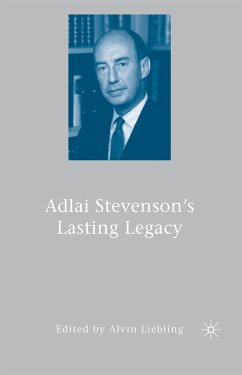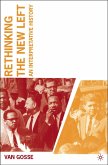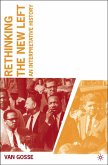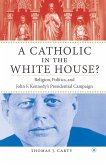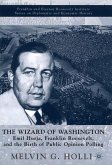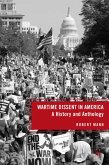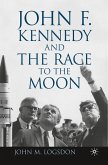Twice unsuccessful Democratic candidate for President of the United States, Adlai Stevenson played a key role in American politics throughout much of the middle of the Twentieth Century. This collection of essays from Senator Eugene McCarthy, Arthur Schlesinger, and others, looks at Stevenson's past and current societal significance.
Hinweis: Dieser Artikel kann nur an eine deutsche Lieferadresse ausgeliefert werden.
Hinweis: Dieser Artikel kann nur an eine deutsche Lieferadresse ausgeliefert werden.
'Democracy for the Guv was no a means to an end. It was the end in itself and propagated in the world by our example and assistance. His politics may no longer be possible today in the multiyear physical and financial endurance contest of the presidential selection process. I hope the American people might restore to their politics the values the Guv exemplified. It was a different world then when he and his compatriots were waging peace, not war, seeking cooperation, not preemption.'
- Adlai E. Stevenson III, former U.S. Senator, Illinois
'Today, American foreign policy still requires the wisdom of Adlai Stevenson's thinking and his patented rhetoric that 'America's role in its own interests and in the wider interests of humanity lies in the patient, unspectacular, and if need be, lonely search for the interests that unite nations, for the international instruments of law and security,' including the development, as in the Congo and elsewhere, of the U.N.'s 'capacity to act'.'
- Harlan Cleveland, former Assistant Secretary of State and Ambassador to NATO
'The Cuba missile crisis was the most dangerous moment in the history of man because never before had war threatened between two powers that had between them the technical capacity to blow up the planet and all the people on it. After the U.S.-Soviet confrontation at the U.N., President Kennedy wired Stevenson: 'The United States is fortunate to have your advocacy,' adding later that Stevenson's work at the U.N. was of 'inestimable national importance.''
- Arthur Schlesinger, Jr., historian and former presidential assistant
'Adlai Stevenson's early public support for a ban on thermonuclear testing in the 1956 presidential campaign 'was attacked ferociously.' But this is the way it is with those who think of the long-term consequences of our actions. He helped create a constituency for a test ban then and to ratify the Comprehensive Test Ban Treaty today.'
- Dr. Sidney Drell and Ambassador James Goodby, former arms control advisors
- Adlai E. Stevenson III, former U.S. Senator, Illinois
'Today, American foreign policy still requires the wisdom of Adlai Stevenson's thinking and his patented rhetoric that 'America's role in its own interests and in the wider interests of humanity lies in the patient, unspectacular, and if need be, lonely search for the interests that unite nations, for the international instruments of law and security,' including the development, as in the Congo and elsewhere, of the U.N.'s 'capacity to act'.'
- Harlan Cleveland, former Assistant Secretary of State and Ambassador to NATO
'The Cuba missile crisis was the most dangerous moment in the history of man because never before had war threatened between two powers that had between them the technical capacity to blow up the planet and all the people on it. After the U.S.-Soviet confrontation at the U.N., President Kennedy wired Stevenson: 'The United States is fortunate to have your advocacy,' adding later that Stevenson's work at the U.N. was of 'inestimable national importance.''
- Arthur Schlesinger, Jr., historian and former presidential assistant
'Adlai Stevenson's early public support for a ban on thermonuclear testing in the 1956 presidential campaign 'was attacked ferociously.' But this is the way it is with those who think of the long-term consequences of our actions. He helped create a constituency for a test ban then and to ratify the Comprehensive Test Ban Treaty today.'
- Dr. Sidney Drell and Ambassador James Goodby, former arms control advisors

